i read the booker prize shortlist so you don’t have to
my ranking of the booker prize shortlist 2024
When news of the latest literary prizes make the rounds on social media throughout the year, my usual reaction is that of slight indifference. I’ll look through the list of finalists, picking out books I’ve read or that I recognise, and then I’ll scroll on and continue with my day. Maybe it’s just a simple case of prize fatigue: there are so many nominees and winners of different prizes constantly being announced, it’s hard to keep up.
Of course, as a reader and part of the online book community, I am obviously aware of these literary prizes. I take note of the award sticker on a book, that it won or was shortlisted for a certain prize, but I wouldn’t say a book winning an award makes it a defining factor in whether or not I pick it up.
But this year, my social media feed was full of Booker Prize content. Many of those I follow were making their way through reading the longlist, or at least attempting to. So when a package of four longlisted titles were kindly sent to me, I thought ok, I’m going to take on this challenge. It’d be a bit of fun, and a great way to diversify my reading as few of these books were even on my radar. Originally, I had hoped to read the entire longlist, but with work commitments and my late decision-making, that quickly became unrealistic, so I settled on the shortlist.
I did manage to read two books from the longlist as well: Headshot by Rita Bullwinkel and Wild Houses by Colin Barrett. Wild Houses is an honourable mention on this list, as I thought it was a great novel (as did Sally Rooney, so we clearly both have great taste).
To preface this, I actually enjoyed all of the books I read for this challenge and felt I got something out of each one. This ranking is just my opinion, and in the grand scheme of things, does my opinion on these books matter? No. Also, knowing me, I will probably change my mind on the whole list by next week.
But for now, here are my thoughts and ranking of the 6 finalists (from least enjoyed to most enjoyed):
Creation Lake - Rachel Kushner
Creation Lake follows ‘Sadie Smith’, an American agent who has been sent to a rural area in France to keep tabs on a radical farming group. Sadie is given the task of discovering whether this group has an anarchist streak, or if she can perhaps incite one in them. During her mission, Sadie spends a lot of time rifling through the emails of the group’s mentor, Bruno, who reminiscences about Neanderthals and their ways of living in the past.
Unfortunately, this book didn’t work for me. I think Creation Lake being labelled as a ‘spy novel’ potentially does both the book and the reader a disservice; the core of the story is probably overlooked, and the reader is given a very different reading experience from what they were expecting. I can appreciate some nihilistic, philosophical pondering as much as the next person, but I spent the majority of my time with this novel waiting for something to happen, and the sections covering Bruno’s emails soon became repetitive and boring.
By the end, I wasn’t sure if Kushner had conveyed the message she wanted to, or if there was even one at all. As Brandon Taylor wrote in his review: “I couldn’t decide if the book was a smart person’s idea of a stupid book or a stupid person’s idea of a smart book.”
Held - Anne Michaels
Told through a series of poetic vignettes, Held is a poignant exploration of war, injury and home. Beginning in 1917 with a soldier laying on a battlefield in the aftermath of a blast, the narrative jumps backwards and forwards in time as the devastation felt by this soldier recurs through generations.
I found this novel quite slow at first and hard to get into, but the more I actually sat down and read it, the more I started to enjoy it. It’s a book that needs to be read in a few sittings, rather than in fits and starts, to really appreciate the rhythm of the prose. The writing makes it clear that Michaels was originally a poet; every sentence is meticulously crafted, almost lyrical in its beauty and melody. I particularly liked the generational thread running throughout this novel and the links between different appearing characters, with some connections made clearer to the reader than others.
James - Percival Everett
James is Percival Everett's spin on Mark Twain's 1884 novel The Adventures of Huckleberry Finn, retold by the runaway slave Jim as he travels down the Mississippi river with young Huck. It’s an adventurous, dark-humoured, and painful tale, bringing to life the brutal reality of a character that Twain could not fully understand in his original conception, but who Everett writes so powerfully.
A highlight of the book was the concept of language, particularly with the code-switching between the enslaved characters, knowing they must perform for the sake of their white owners despite being intelligent talkers when conversing with one another behind closed doors. It’s a great insight into how language can be used and sometimes even weaponised to suit your own means, as well as a vehicle through which Everett explores identity as a constantly shifting construct, dependent on your current environment.
Stone Yard Devotional - Charlotte Wood
In Stone Yard Devotional, a woman abandons her city life and marriage to stay at a religious commune in the Australian wilderness. Although she doesn’t believe in God and doesn’t know exactly why she’s taken refuge there, time passes and she finds herself living this strange, reclusive existence. But the commune’s solitude is soon disrupted by a series of ‘visitations’: a mouse plague, the bones of a long-missing nun are returned, and a visitor stirs up painful memories for the narrator.
While there is a lot happening in this novel - the plague of mice, the bones of a former nun who was murdered abroad being returned to the commune, and the arrival of an activist nun with whom the narrator knows from her youth - there is also simultaneously not a lot happening. It’s a quiet novel, an effect which makes it feel almost otherworldly. The novel has a steady, meditative pull, placing the reader alongside the narrator in her day-to-day, ritualistic life.
She spends her days working through flashes of her childhood memories and grief, which continue to rise up, unwanted, just like the plague of mice. I was captivated the whole way through. It’s a book which reminds us about our own mortality, about what it means to live a ‘good’ existence. Also a warning: do not read this one while eating.
The Safekeep - Yael Van Der Wouden
The Safekeep follows Isabel, an obstinate woman who lives alone in her late mother’s country home, led by routine and discipline. But her life is upended when graceless Eva, her brother’s newest girlfriend, is permitted to stay at the house while he travels for work. Furious with the situation, Isabel develops an obsession with Eva, and when things start disappearing around the house, her suspicions spiral out of control.
Set in the post-war Netherlands, this novel is an expert blend of historical fiction and romance. Through her characters and their interactions, Van der Wouden crafts a taut novel about obsession, desire, suspicion, and reckoning with history. It’s a novel that’s hard to talk about fully without the risk of spoiling it (something that almost happened to me while I was reading a review before I picked it up, so it’s probably best to go into it not knowing much). The tension is slow to rise, a steady pulse beating in the background, a simmering pot threatening to boil over, until it eventually does, in all its glory.
Orbital - Samantha Harvey
Set across one day, Orbital focuses on a crew of six astronauts as they orbit the earth from the International Space Station. While reporting on the earth from above, tracing storms and watching the sun set and rise again, each character reflects on their own pasts and the lives awaiting them back on earth.
This slim novel contains some of the most poetic, awe-inspiring prose I’ve read in a very long time. Orbital was the first book I picked up related to this year’s Booker Prize, mainly because it was the shortest. It’s not the type of book I would usually read, in fact I doubt I would have picked it up if it wasn’t for my decision to read the shortlist, but it’s now one of my favourite books of the year. I started it while waiting in my car, and I was immediately absorbed, almost finishing it in that one sitting.
It’s set in space but it’s really a novel about the earth. It’s a beautiful, reflective meditation of humanity, the recognition of our fragility but a celebration of our hope. The overarching message continues to ring true long after you’ve closed the book: perhaps all is not lost if we take a step back and realise what it is that we’d be losing.
If you’ve read any of these books, I’d love to know your thoughts and opinions, or any predictions you have on who could win the Booker this year! Obviously I would like Orbital or The Safekeep to win, although I do think James has a strong chance also.
endnotes
A few things I’ve been loving lately:
The song That’s So True by Gracie Abrams
Netflix documentaries. A recent standout was Sweet Bobby. I definitely recommend going into it blind. I may listen to the podcast it’s based on, as I’ve heard it covers a lot more.
These Granta editions of Han Kang’s books. I bought copies of The Vegetarian and Human Acts this weekend, so I’m excited to read them.
The TV show Rivals on Disney+. I’m on episode 4 and quite simply obsessed.




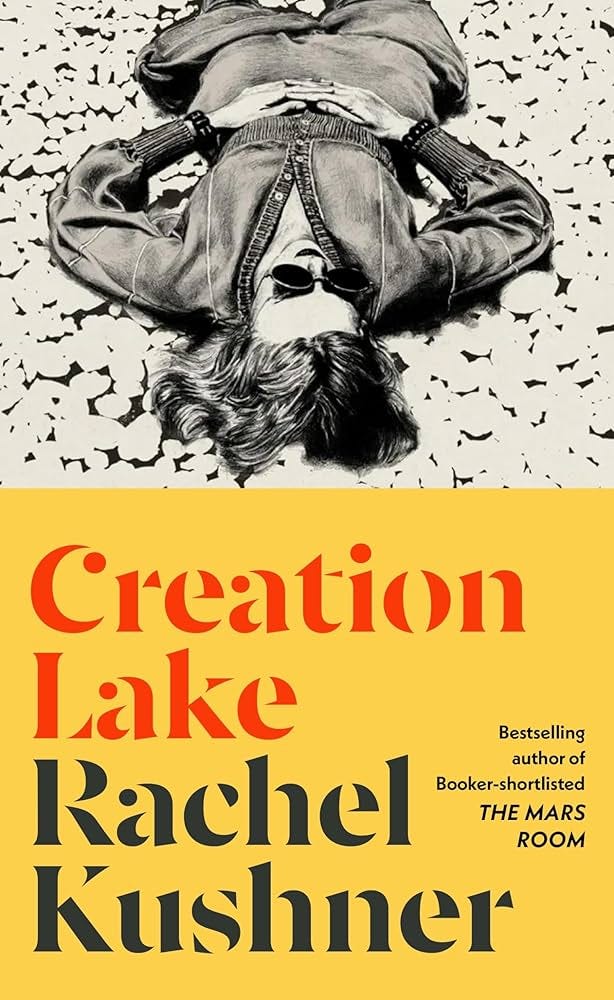
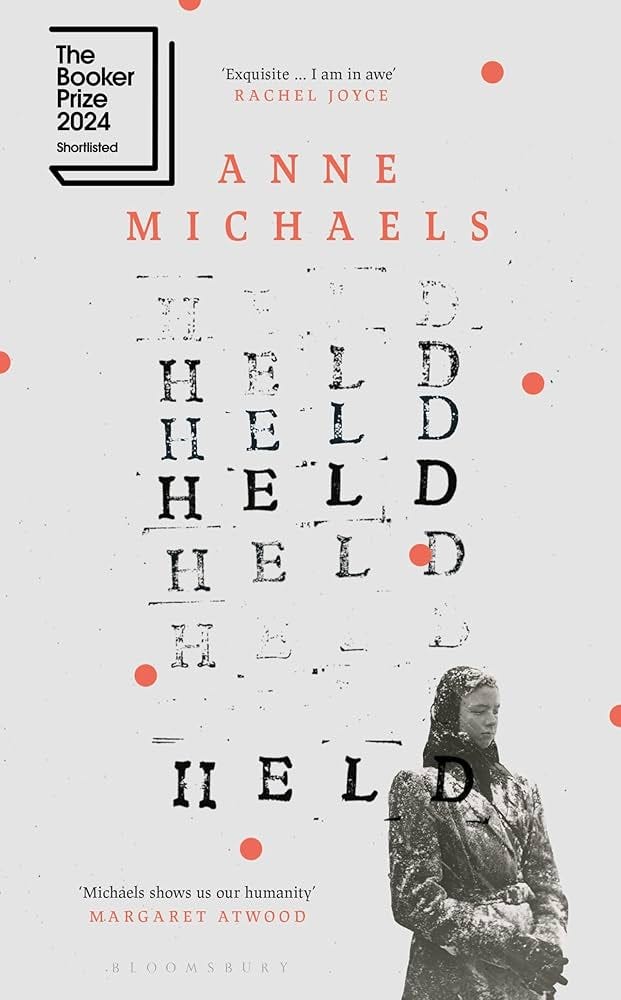
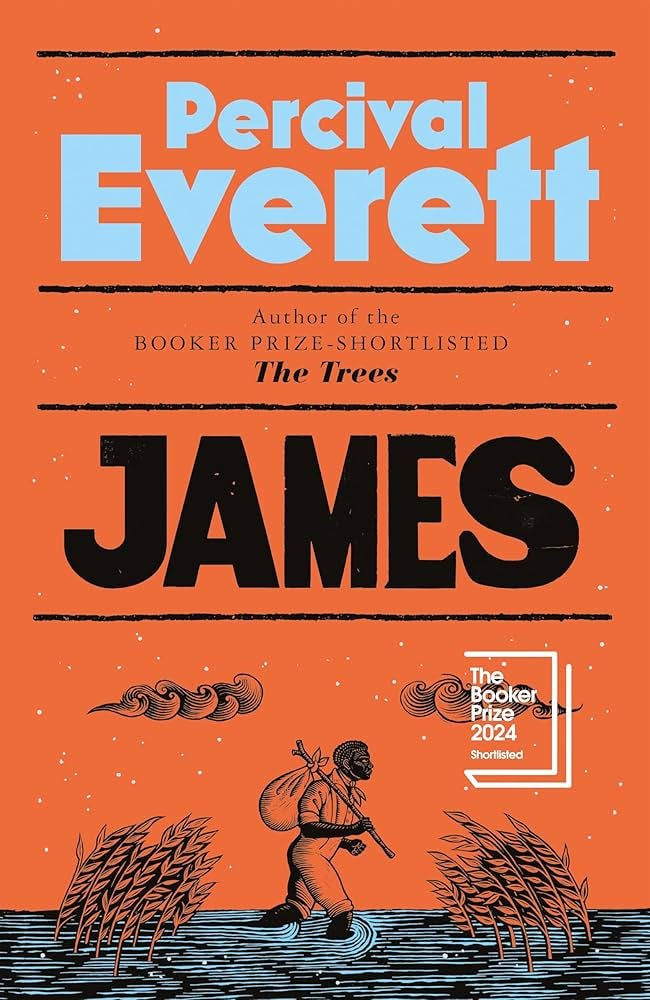
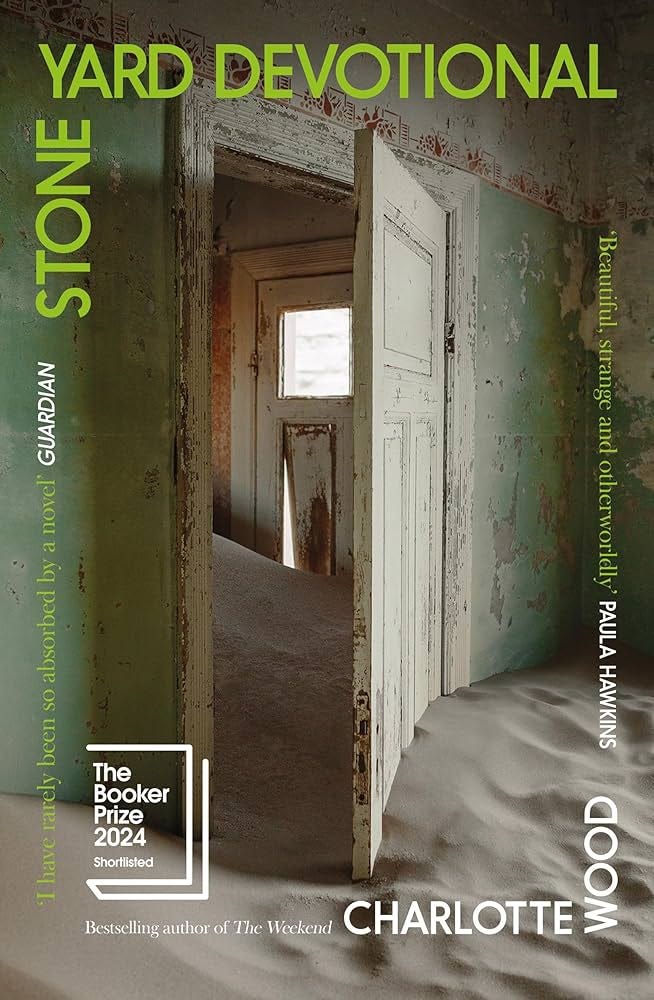
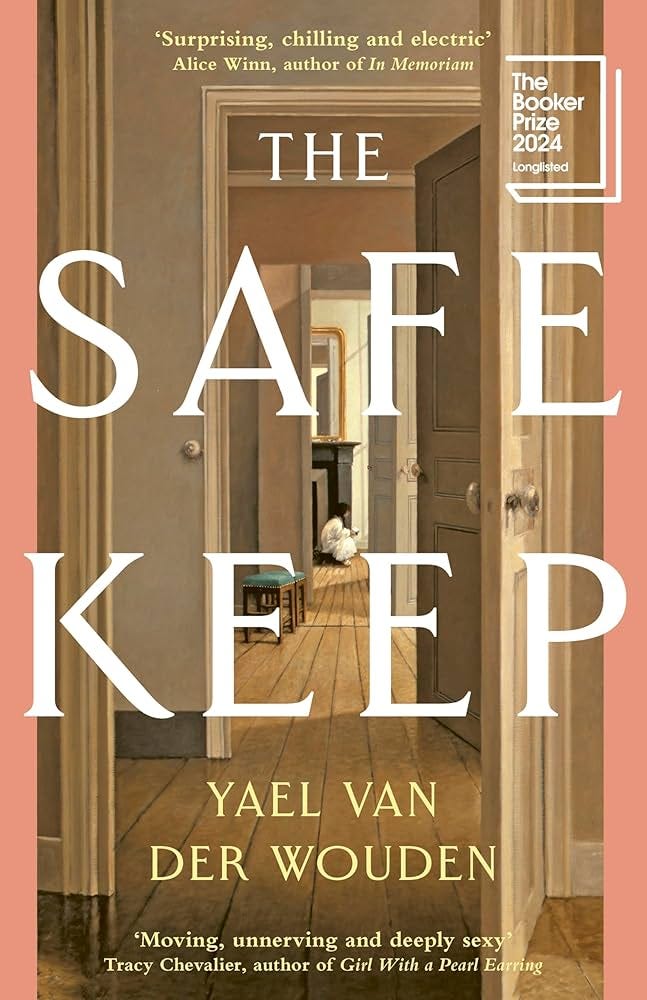
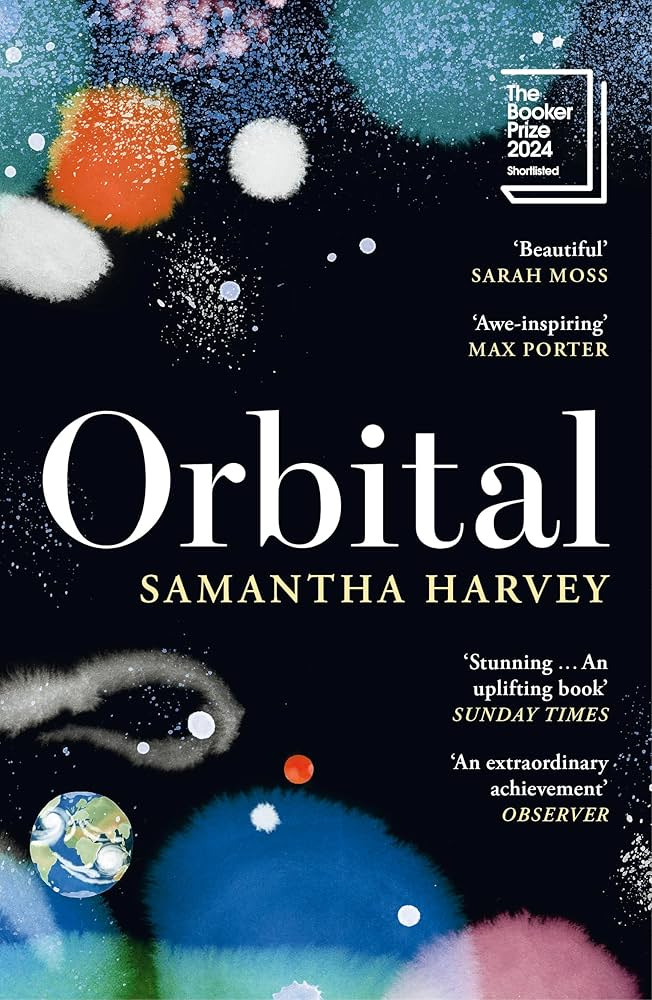

Including the Brandon Taylor quote XD the only one I’ve read so far is The Safekeep and I found it underwhelming. Hoping to pick up James and My Friends still!
I used to wait for the booker lists but over the last 10 years, the books have been mostly rubbish. Thanks for reading and providing your summaries. The Safe Keep might be worth a look.